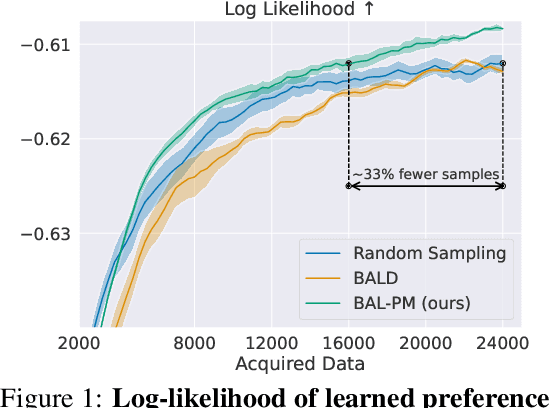Deep Bayesian Active Learning for Preference Modeling in Large Language Models
Paper and Code
Jun 14, 2024



Leveraging human preferences for steering the behavior of Large Language Models (LLMs) has demonstrated notable success in recent years. Nonetheless, data selection and labeling are still a bottleneck for these systems, particularly at large scale. Hence, selecting the most informative points for acquiring human feedback may considerably reduce the cost of preference labeling and unleash the further development of LLMs. Bayesian Active Learning provides a principled framework for addressing this challenge and has demonstrated remarkable success in diverse settings. However, previous attempts to employ it for Preference Modeling did not meet such expectations. In this work, we identify that naive epistemic uncertainty estimation leads to the acquisition of redundant samples. We address this by proposing the Bayesian Active Learner for Preference Modeling (BAL-PM), a novel stochastic acquisition policy that not only targets points of high epistemic uncertainty according to the preference model but also seeks to maximize the entropy of the acquired prompt distribution in the feature space spanned by the employed LLM. Notably, our experiments demonstrate that BAL-PM requires 33% to 68% fewer preference labels in two popular human preference datasets and exceeds previous stochastic Bayesian acquisition policies.
 Add to Chrome
Add to Chrome Add to Firefox
Add to Firefox Add to Edge
Add to Edge